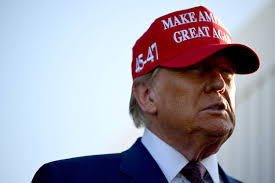Investment bank JPMorgan warned Thursday that emerging markets may be witnessing a dreaded “sudden stop” of capital flows as President Donald Trump’s “America First” policies boost the U.S. economy and drain funds from developing nations, which analysts fear deprive economies of the funds they need to grow or even just survive.
According to JPMorgan’s internal data, there were $19 billion in “net capital outflows” from developing nations, excluding China, in the most recent quarter, with an additional $10 billion anticipated to leave in Q1.
In a research note, the bank stated that the phenomenon was not “to be taken lightly” and that “put simply, using the widely accepted academic definition, this would signal that EM ex-China is on the verge of a sudden stop.”
For now, there are a few restrictions.
An EM-centric event is not driving the current slowdown in capital flows, but rather the tightening of financial conditions globally as Trump’s tariffs and tax cut commitments enhance the probability that U.S. interest rates stay higher for longer.
Keeping this in mind, “this is not a situation where specific EM countries are under pressure and are facing balance of payments or currency pressures as was the case in 1998-2002, 2013, 2015,” said JPMorgan.
Laptops 1000Nor did a “risk-off” global sell-off stem from the weak U.S. economy.
“Rather, it is one of a strong US economy and policy risks pulling flows out of EM,” said analysts.
According to JPMorgan, Trump’s actions and whether important U.S. data on retail sales, inflation, and employment are robust enough to influence the Fed’s interest rate decisions will determine how things develop from here.
Most economies should be able to withstand the shock even if EM suddenly stops.
According to JPMorgan, Romania, Malaysia, South Africa, and Hungary were the countries most at risk.

















